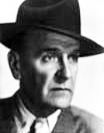Ivo Tijardović
| Ivo Tijardović | |
|---|---|
 |
|
| 43rd Mayor of Split | |
|
In office 15 May 1942 – September 1943 |
|
| Preceded by | Ivo Amulić |
| Succeeded by | Josip Smodlaka |
| Personal details | |
| Nationality | Croatian |
| Political party | Unitary National Liberation Front |
| Alma mater | University of Zagreb |
| Occupation | Composer |
Ivo Tijardović (Croatian pronunciation: [ǐːʋo tǐjaːrdoʋit͡ɕ]; September 18, 1895 – March 19, 1976) was a Croatian composer, writer, and painter from the Dalmatian city of Split. A member of the Unitary National Liberation Front, he served as the 47th Mayor of Split, during the city's World War II occupation by Fascist Italy, as head of its underground resistance government set up by the Yugoslav Partisans of Josip Broz Tito.
Tijardović was born in the city of Split (then part of the Kingdom of Dalmatia in Austria-Hungary) and studied music in Split and in Vienna, where he also studied architecture. He graduated from the Zagreb drama school in 1922. He then worked as conductor and stage designer at the Split Municipal Theatre (1922–29) before joining the music department of the Edison Bell Penkala recording company in Zagreb (1929–33). Returning to Split, he became director of the Croatian National Theatre, stage director of the Croatian National Theatre in Zagreb, and director of the State Symphony Orchestra (later, the Zagreb Philharmonic). As a composer, he relied on folklore and a national musical expression, especially of his native region of Dalmatia. He composed eight operettas, the best known of which are Mala Floramye ("Little Floramye") and Splitski Akvarel ("The Split Aquarelle"), which conjure the magic of Split between the two world wars. His operas dealt with historical themes. He also painted and worked as an illustrator.
...
Wikipedia
